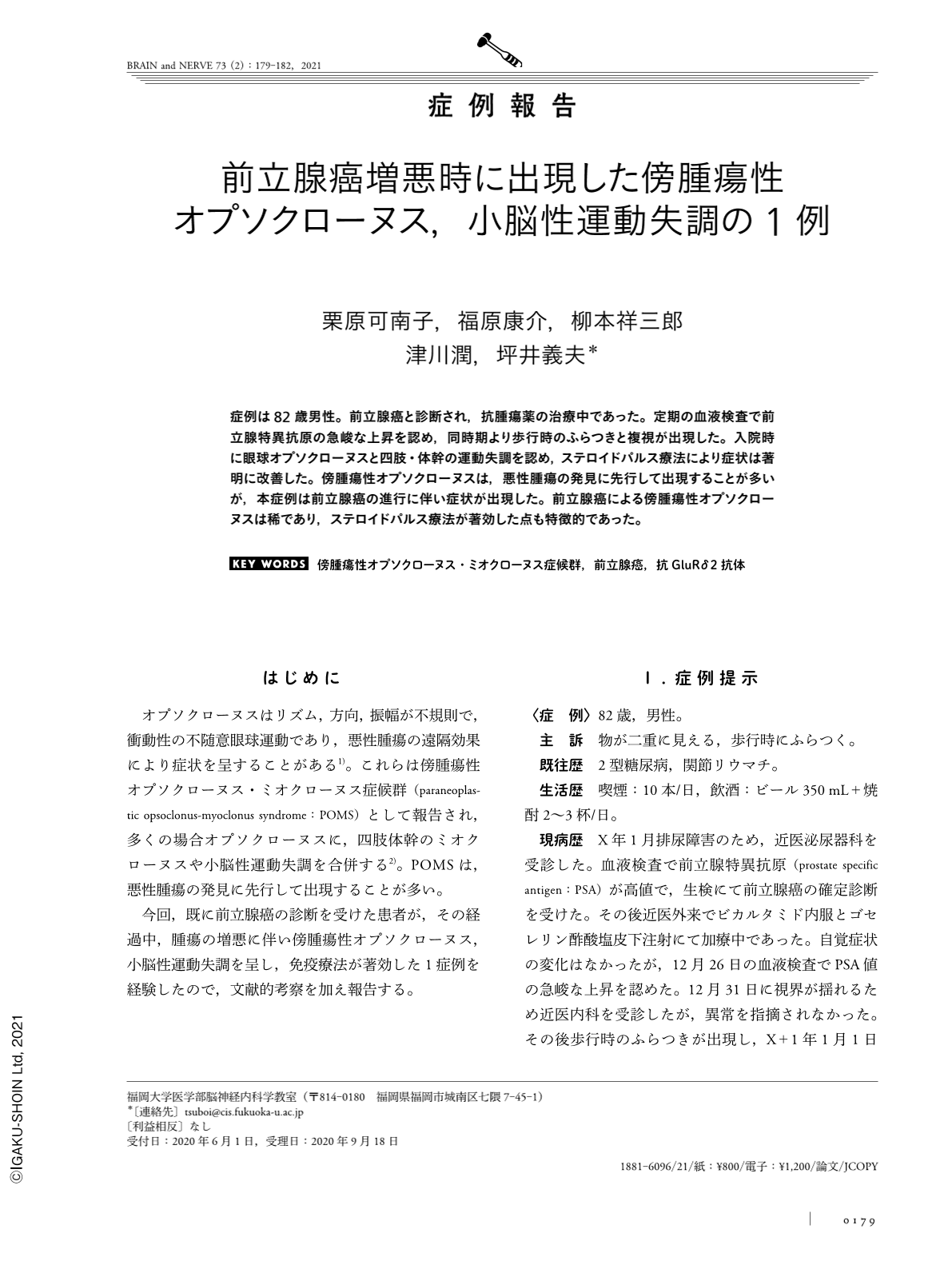Japanese
English
- 有料閲覧
- Abstract 文献概要
- 1ページ目 Look Inside
- 参考文献 Reference
症例は82歳男性。前立腺癌と診断され,抗腫瘍薬の治療中であった。定期の血液検査で前立腺特異抗原の急峻な上昇を認め,同時期より歩行時のふらつきと複視が出現した。入院時に眼球オプソクローヌスと四肢・体幹の運動失調を認め,ステロイドパルス療法により症状は著明に改善した。傍腫瘍性オプソクローヌスは,悪性腫瘍の発見に先行して出現することが多いが,本症例は前立腺癌の進行に伴い症状が出現した。前立腺癌による傍腫瘍性オプソクローヌスは稀であり,ステロイドパルス療法が著効した点も特徴的であった。
Abstract
An 80-year-old man was diagnosed with prostate cancer in April 2014 and underwent anticancer treatment. His serum prostate-specific antigen (PSA) level was abruptly increased on December 26, 2014. He was admitted to the neurological department of our hospital on January 14, 2015, because of the appearance of staggering gait and diplopia. Neurological examination revealed marked opsoclonus, limb ataxia and ataxic gait. The patient was diagnosed with paraneoplastic opsoclonus and ataxia caused by prostate cancer relapse. Steroid pulse therapy was initiated and his symptoms, including opsoclonus and ataxia, markedly improved. Although most cases of paraneoplastic opsoclonus precede the discovery of cancer, our case developed symptoms simultaneously with relapse and acute progression of prostate cancer. Paraneoplastic opsoclonus with prostate cancer is rare. Additionally, our case showed excellent response of opsoclonus to steroid therapy without treatment of the underlying disease.
(Received June 1, 2020; Accepted September 18, 2020; Published February 1, 2021)

Copyright © 2021, Igaku-Shoin Ltd. All rights reserved.


